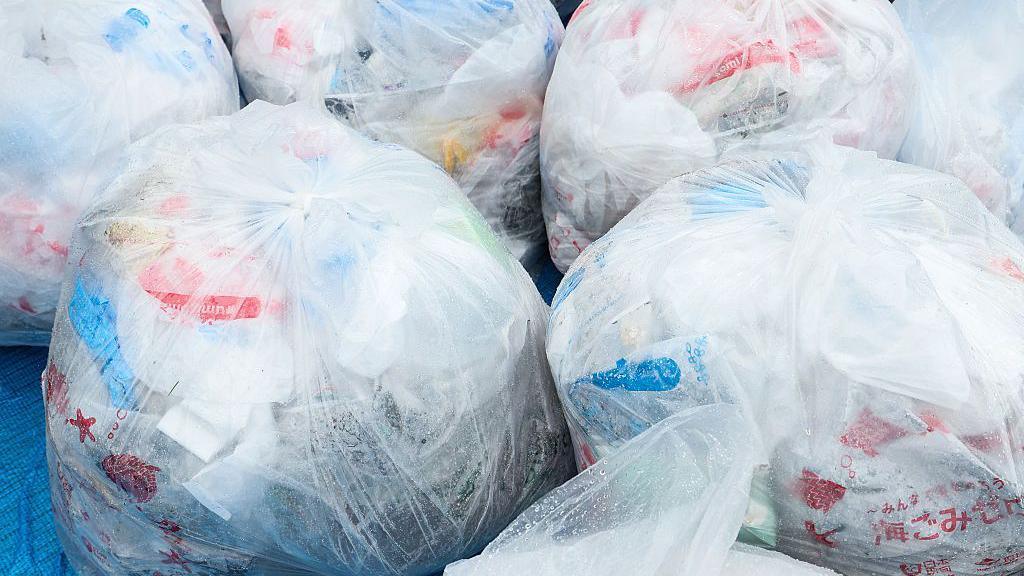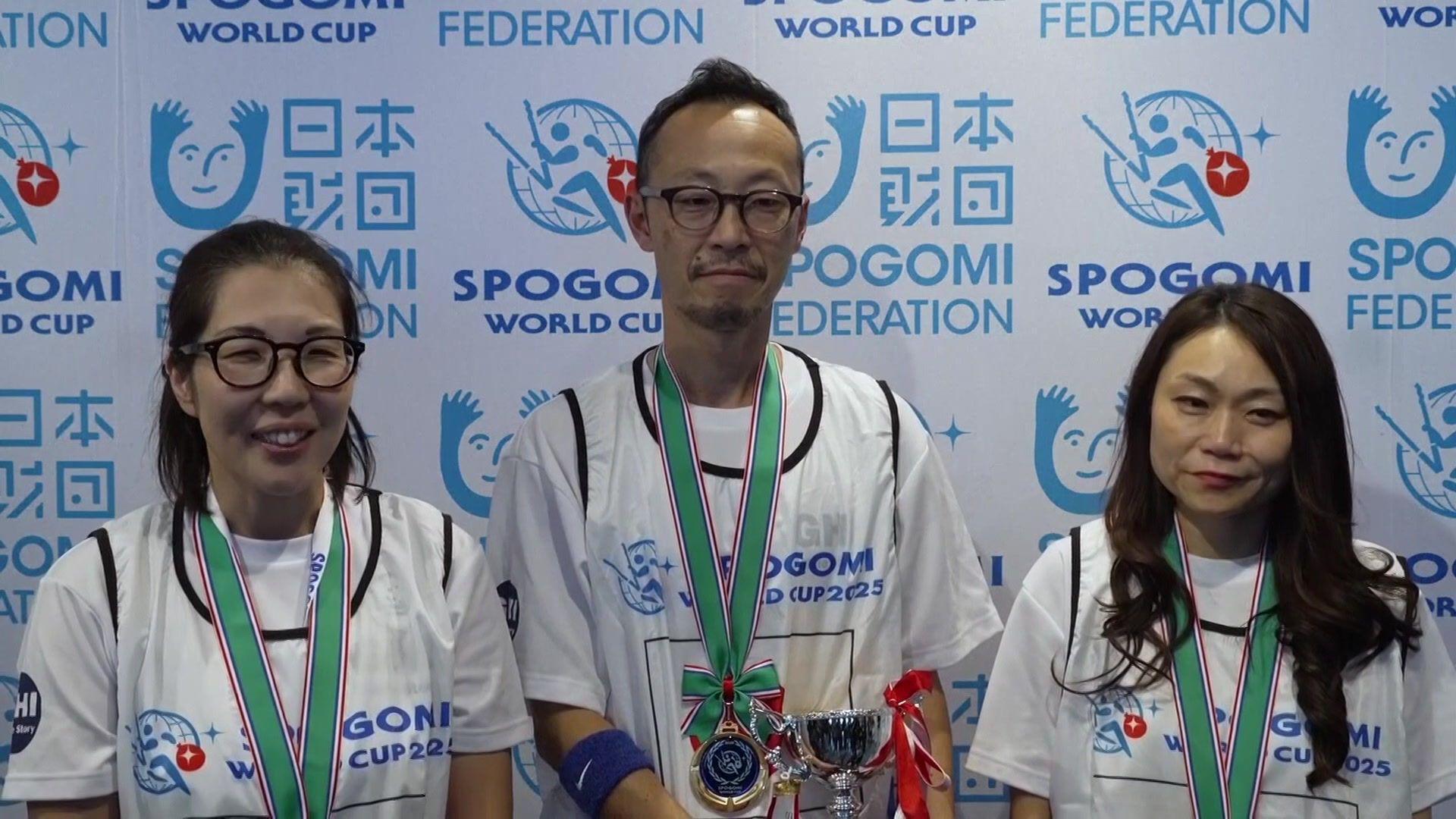Trash to treasure: Who won the litter picking World Cup?
Check out this year's litter picking World Cup!
- Published
It's been a huge year for international competitions - the Women's Rugby World Cup, the Women's Cricket World Cup and of course the Euros.
But there's one huge competition you may have missed - the litter-picking World Cup of course!
People from 33 countries, including Japan, the UK, Australia and France, gathered in the Japanese capital Tokyo to try and win the SPOGOMI Trash-picking Sports World Cup title by picking up the most litter within a certain time limit.

Here you can see Germany competing in 2023
What is the litter-picking World Cup?
Litter-picking as a sport started in Japan, and is called Spogomi.
It was created in 2008 as a competition to encourage people to clean up public spaces but it's now become so popular it's spread around the world.
In Japan it's even played in schools, and the rules are quite simple.
The teams of three have to collect as much litter as possible within the time given, then in the next stage they have a set time to sort their litter.

How much litter do you think you could pick up in 45 minutes?
They have 45 minutes to collect trash, plus 20 extra minutes to sort it.
Teams are awarded points based on the type of litter they've picked up and its recycling category.
Heats take place in lots of countries around the world to decide who will represent them in the final, which this year was held in Tokyo, the capital of Japan.
Who won this year?

Team Smile Story from Japan won in their home country
The competition was fought between 33 countries, but it was Team Smile Story from Japan who won the final in Tokyo.
They picked up a whopping 74.76kg of litter for 7210 points!
"I truly felt today that if we can gradually spread the things we do every day to more people in more places, the Earth will slowly become cleaner, and so will our hearts as human beings," said Team Smile Story's Tomoe Takahashi.
"When that happens, I believe the Earth will rejoice, and peace will begin to spread little by little across the world."
